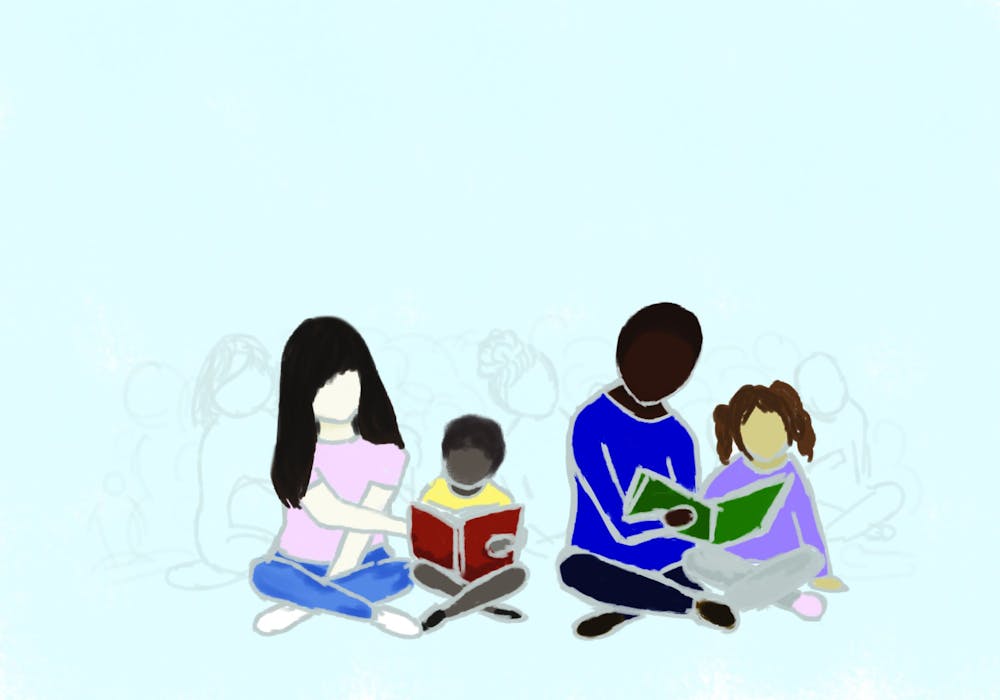Defined by in-person volunteering, Academically Based Community Service courses bring Penn students to local schools and organizations to serve Philadelphia residents. But as the coronavirus ushers in an era of virtual instruction, professors are grappling with redesigning their classes to keep students and the community engaged.
ABCS courses, designed by the Netter Center for Community Partnerships, enable students and faculty to “work with West Philadelphia public schools, communities of faith, and community organizations to help solve critical campus and community problems in a variety of areas such as the environment, health, arts, and education,” according to the Netter Center’s website.
In response to the epidemic, the Netter Center wrote in an emailed statement to The Daily Pennsylvanian that “all partners, including ABCS instructors, TAs, community partners, and the Netter Center are working hard together to identify ways in which ABCS courses and Netter Center programs can continue to work together during this unprecedented situation.”
Music and urban studies professor Molly McGlone teaches Music in Urban Spaces, where students volunteer with music teachers at public schools, a local orchestra, and the Free Library of Philadelphia, where they lead guitar lessons. The class is a full year long, which McGlone said allowed the students to build relationships with the community in the fall and early spring.
But the end-of-year concerts in April were canceled and the volunteering was cut short.
“We are all sad that we don’t get to continue to see our musicians and theater students grow over the rest of this term,” she said. Now, students will continue learning online via asynchronous discussions and must complete a final project.
In the Community Based Environmental Health course, students research environmental health in the local community and speak with experts in the field, advocacy groups, and community members.
While students were able to take a field trip to the Philadelphia Energy Solutions oil refinery in South Philadelphia at the beginning of the semester, professor Marilyn Howarth worries that her students, who are still expected to present a project at the end of the course, will have a difficult time conducting research in light of the pandemic.
RELATED:
Virtual experiments and mailed equipment: How professors are moving labs online
Wharton to introduce its first course on artificial intelligence in 2021
College sophomore Jordan Fox said she has had trouble contacting sources for her project analyzing the economic impacts of the PES refinery.
“The main issue so far has been getting in touch with key people,” Fox said. “Most of the people I need for my report work in the city of Philadelphia, and many of them don’t have the time to talk to me or haven’t responded because of the coronavirus.”
Some ABCS courses were scheduled to begin the community service component of the class immediately after spring break — such as Inequity and Empowerment: Urban Financial Literacy — but now no longer have the chance to do so.
Students in the urban finance course would have visited local high schools to teach financial literacy or invited local students to Penn to participate in "Community Day" finance programs, co-professor of the course Brandon Copeland said. He said he is working on a way for the students in his course to teach the high schoolers virtually.
College first-year Mike Petros, who said the community service component heavily influenced his decision to take Copeland’s class, was disappointed that he was not given the opportunity for face-to-face interaction with local students.
“One of the main reasons I decided to go to Penn was because of the opportunities I would have at this school to give back to a community of people that look like me,” Petros said.
With coronavirus disrupting learning for both Penn and the surrounding community, faculty and local educators are considering different approaches for Penn to provide assistance to local students in need.
“Across the district, families are struggling with being sure they can feed their families, hold down jobs that are hourly or might have reduced or canceled hours, and at the same time keep some semblance of learning going,” McGlone said. “I think Penn and ABCS courses should not burden our schools by asking for things at this difficult time.”
Andrew Schiera, professor of Urban Education at Penn and teacher at William L. Sayre High School in West Philadelphia, said that it is possible for ABCS courses to help local students and families virtually — they just have to reach out and ask what resources students need. He added if students need help with algebra, for example, Penn students could figure out a way to tutor virtually.
Richard Gordon IV, principal of Paul Robeson High School in West Philadelphia, highlighted the need for University- and community-assisted technological support for families to ensure access and equity issues are addressed.
While Gordon said he supports Philadelphia School District Superintendent William Hite's plan to buy laptops for students in need, he said that a laptop without home internet service will not completely solve accessibility issues.
Gordon added that “a lot of families have been ordered to stay home and not go to work, but this economic climate still requires that our bills get paid,” citing the 90% poverty rate that impacts his school.
Jada Warfield-Henry, an English teacher at Sayre High School, called on Penn to consider donating discarded computers, adding that the pandemic has exposed the inequities in the American education system.
“This just proves that where we need to focus resources is in our low-income communities, ensuring that all of our kids in the 21st century have access to computers and the internet,” she said. “Because kids in more affluent school districts aren’t missing instruction.”









